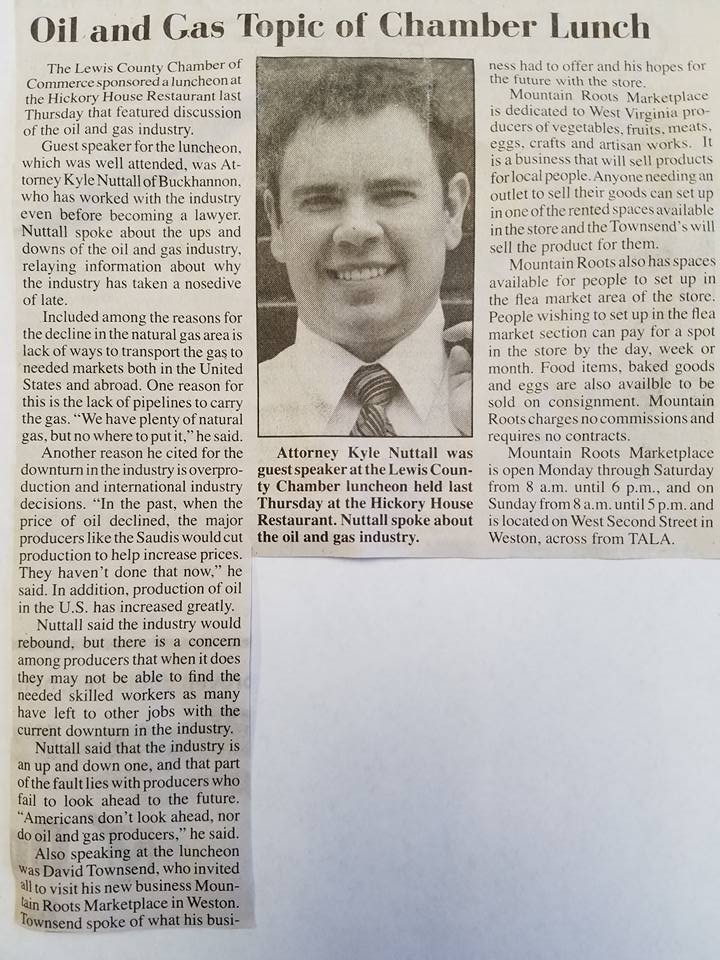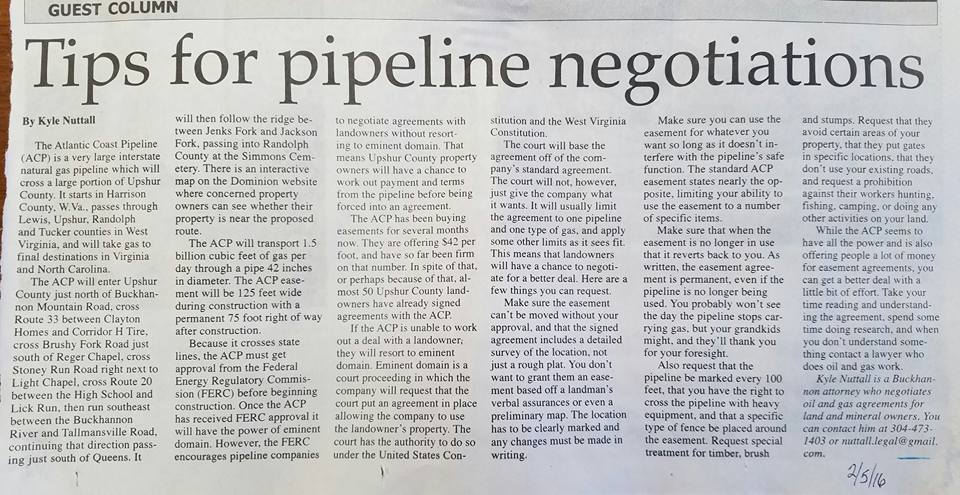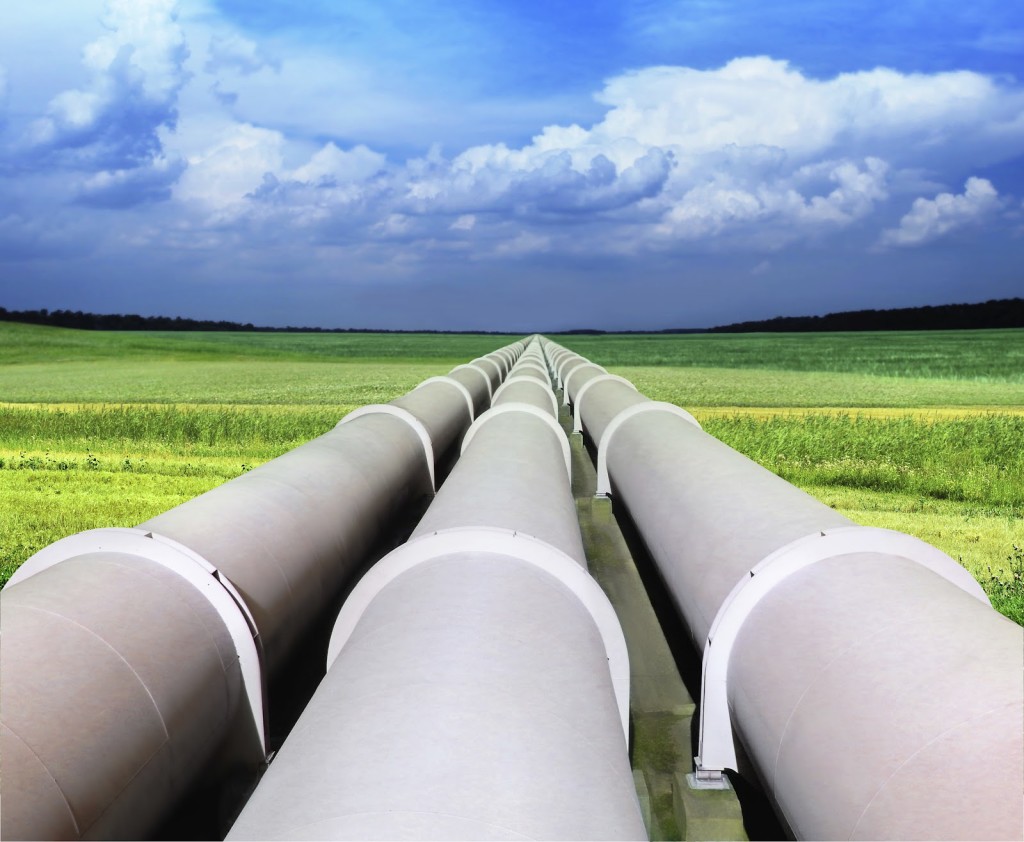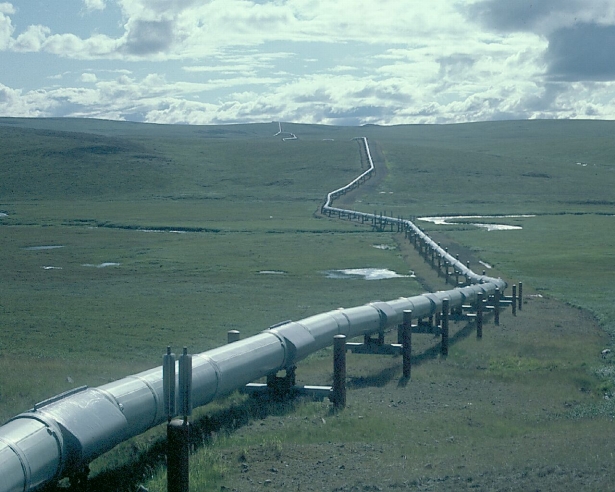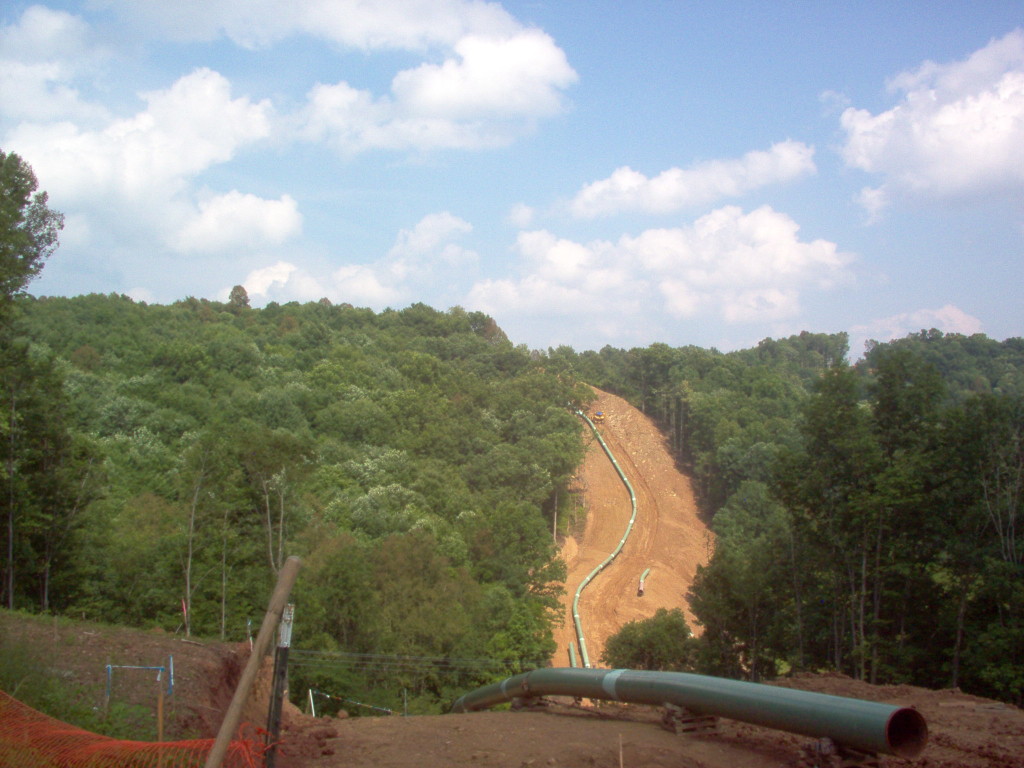Category Archives: Pipelines
Guest Column in Record Delta Newspaper
Gas Pipeline Explosion
A 30-inch gas pipeline exploded in Westmoreland County, PA on Friday. We’ve been a bit busy around here, so we haven’t been keeping up with the news.
The Pittsburgh Post-Gazette has some good pictures and interviews. It’s really scary to think what one of these pipelines does when it explodes. I’ll have one about 200 yards or so from my house in about two years, and I’ll be preparing an escape plan.
The Fire Chief said he parked 1/4 mile away and he couldn’t get out of his truck because of the heat.
We’re big fans of having the pipelines built, as we really need them for continued development in this area. We also have to be careful about them. They don’t fail often, but when they do fail it’s spectacular and extremely dangerous. We have to be prepared, and we have to make sure the companies are doing their work correctly.
WDTV News: Oil and Gas Attorney Discusses Pipelines with Lewis Co. Commission
 Kyle Nuttall attended the Lewis County Commission’s meeting on Monday and spoke about the proposed pipelines that will be going through the County, the Mountain Valley Pipeline and the Atlantic Coast Pipeline. The short write up in the newspaper only touched on a portion of what he talked about. He’ll be attending a number of other events in the next few weeks and we’ll post about those events as they happen.
Kyle Nuttall attended the Lewis County Commission’s meeting on Monday and spoke about the proposed pipelines that will be going through the County, the Mountain Valley Pipeline and the Atlantic Coast Pipeline. The short write up in the newspaper only touched on a portion of what he talked about. He’ll be attending a number of other events in the next few weeks and we’ll post about those events as they happen.
Atlantic Coast Pipeline Construction Delayed
Dominion has announced that it is delaying the start date for construction on the Atlantic Coast Pipeline. Interestingly, they still plan on putting the pipeline into use at about the same time they had originally planned. The new target for construction is summer of 2017, with the pipeline slated for first use sometime in 2018. So what they’ll be doing is running more crews over a shorter period of time.
UPDATE: This article says the ACP will have an 18 month construction period. If construction starts in the summer of 2017, that’s cutting it pretty close to 2019 before it will be finished. Work on a pipeline can go awfully fast, but if there are any delays at all they simply won’t be able to finish before 2019.
ACP Changes Route Through Randolph County, WV
It’s not every day that you hear about a big corporation going out of it’s way to, literally, go out of it’s way. Particularly when it’s just based off people making requests that the big company do so. That’s exactly what happened in Randolph County, WV this week though.
A number of citizens voiced concerns about the Atlantic Coast Pipeline crossing through an area called Mingo Flats. A Google search for Mingo Flats, WV brings up a surprising number of interesting and diverse articles, including a 5-minute first-person view of someone riding a motorcycle along Mingo Flats Road. Apparently there is some historic value to the area. This blog post by Granny Sue’s News and Reviews was enlightening.
The article in the Inter Mountain is behind a paywall, but if you do a Google search for the exact title of the article “Dominion gives ACP plan update” and click on the link Google provides, you can get around the paywall.
Tangent Warning: I’m not sure why so many news sites work that way, but many of them do; it’s so easy to get around that it doesn’t make sense to have a paywall like that. Try it, it works for a surprising number of paywalls.
Back on point: the article hints that there have been other concerns raised by Randolph County residents, and it sounds like this was the only one that the ACP is going to address. Perhaps the other concerns were not voiced by large numbers of residents, or they weren’t significant to the ACP. I’m sure they were significant to the owner of the property.
If you need help negotiating with the Atlantic Coast Pipeline people, give us a call. That’s what we do, all day, every day. We can also help you actually understand what that Easement Agreement says and does. You might be surprised at what you don’t realize you don’t know. It pays to get some professional help with this kind of thing. After all, this agreement is going to be in effect for decades. It will be in effect for longer than that if you don’t get the right changes made to it. Don’t make the mistake of burdening your property with an Easement Agreement that is never going to expire just to save a few bucks now. Call us, you’ll be glad you did.
304-473-1403
Keystone Pipeline Leaks, Surface Owners Need to Think Ahead
Here in West Virginia and the greater Marcellus shale and Utica shale area we really need pipelines. The big issue that is keeping us from producing a lot more gas and from receiving a price closer to the Henry Hub price for that gas is that the existing pipeline infrastructure is full. Packed to the brim. Overflowing, if that were possible. We’re big fans of pipeline projects because we need them.
However, we also believe in going into a situation with our eyes wide open. For pipelines that means you have to be aware that sometimes they fail. We’ve documented a few explosions and leaks here in West Virginia in the past.
The big news about a pipeline failure comes to us today from South Dakota, where the Keystone pipeline is leaking. Apparently the company originally told regulators that the pipeline had spilled about 187 gallons of oil.
The leak was discovered last Saturday. Now, when we say the leak was discovered, we don’t mean that an actual hole was found spewing oil into the air or onto the ground or, heaven forbid, into a body of water. No, the company merely observed some numbers which indicated that there was a leak. They either detected a drop in pressure or calculated a lack of delivered product or something.
Six days later they still haven’t pinpointed the source of the leak. Consequently, the company thinks they have leaked about 16,800 gallons of oil. Somewhere.
To be fair, they’ve narrowed the location of the leak down and shut off that portion of the pipeline. They are even digging in the area to find the oil that was spilled and to find the leak and patch it. It won’t take long, but it’s already taken longer than it should.
This story points out the problem with having a pipeline close to your house. At some point a natural gas or oil pipeline is going to leak somewhere. You have to be aware of that eventuality so that you can plan and prepare for it. You probably can’t stop the pipeline from being located near you, but you can at least do things to mitigate the damage.
You can start off by getting more money from the company. Take some of that money and buy emergency supplies.
Prepare an emergency plan for what you are going to do in various pipeline-related emergencies. If the pipeline springs a leak what are you going to do and where are you going to go? What if the pipeline explodes? Will you need to do different things in the winter and summer? What about in the middle of the night or during school hours? Make sure to think this through thoroughly.
The 42-inch and 36-inch pipelines being built in West Virginia are good for the economy, but we have to be aware of the associated dangers, too. A 42-incher is going in a few hundred yards from my house, and we’ll be thinking this stuff through ourselves. Make sure you do, too.
Mountaineer Gas to Expand Service in Eastern Panhandle
Just about anyone in West Virginia who uses natural gas to heat their homes or cook their food buys from Mountaineer Gas. Mountaineer Gas also provides gas to industrial customers. They are expanding their services in the eastern panhandle, adding 46 miles of low pressure distribution pipelines in Morgan, Berkeley, and Jefferson counties. The pipelines will be between 6 and 12 inches, and run at about half the pressure of a typical transmission line, or several hundred PSI. The project is expected to be complete by the end of 2017, but still needs approval from the Public Service Commission before work can begin.
The new pipelines are intended to provide gas to industrial and commercial customers. Lack of gas has been a factor in the decisions of some companies to not locate in the eastern panhandle. The new Proctor and Gamble plant will need natural gas, and this project is probably part of that deal. Having natural gas available will make it possible for other companies to locate there in the future. This is something we weren’t aware of that needed to happen in order to improve West Virginia’s economy.
Any eastern panhandle landowners who will be affected by the Mountaineer Gas pipeline should remember that they can negotiate with the company for better terms, including making the right of way or easement temporary, larger payments, and increased control of the property. If you sign the first offer they put in front of you, you are doing yourself a disservice, as well as anybody who might inherit or buy the property from you.
West Virginia Pipelines
This article in the WV Gazette is a pretty good overview of what’s going on with the gas pipelines in West Virginia. It’s not terribly long and is worth the read, so we won’t summarize it here. Enjoy!
Stonewall Gathering Line Increases Royalties
This article over at Natural Gas Intelligence covers a few topics and is worth the read. The most interesting point to us was that the Stonewall Gathering Pipeline, which went into service in December 2015, has already impacted revenues for Antero Resources, and has therefore impacted royalty checks. A few more pipelines would make a big difference to all the royalty and mineral owners in West Virginia.

